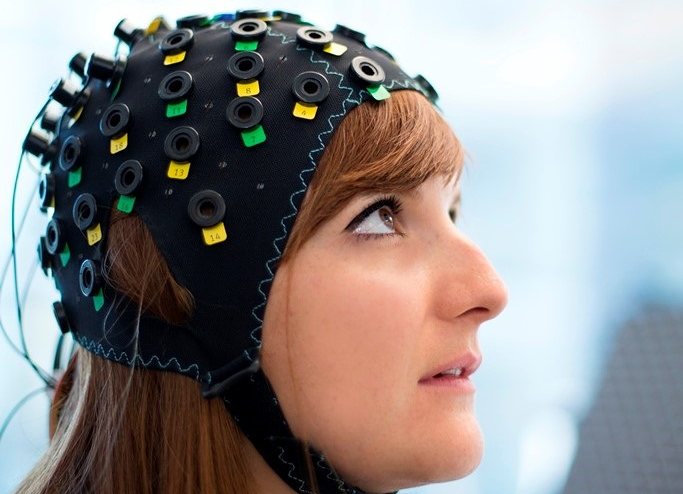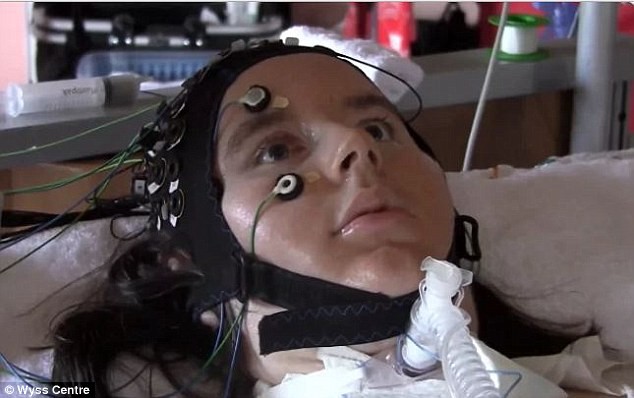
In Germany, at the University of Tübingen, neurological researchers used a cap outfitted with functional near-infrared spectroscopy (fNIRS) to communicate with patients suffering locked-in syndrome.
It was the first time we’ve been able to connect with someone this locked-in, and it’s changing the way look at these patients.
Locked-in Syndrome

(source: dailymail.co.uk)
Imagine you can open your eyes, but you cannot speak and you cannot move a muscle. Your family and the doctor stand over you in the hospital, talking about you as if you can’t hear. They haven’t yet figured out that you have locked-in syndrome (LIS).
In some cases, patients with LIS cannot blink, something called total locked-in syndrome. For many patients, blinking is their only means of communication.
It’s not a vegetative state. Your brain functions, inside the fact that it cannot facilitate movement beyond your eyelids. The causes of this disorder vary, from trauma and poisoning to strokes or escalation of other conditions like MS.
There are no treatments for LIS. Diagnosis can be difficult. It may appear that you are unconscious or even dead.
Up until this study, we feared the worst for the patient, that the condition was a nightmarish trap of the mind. We may have been wrong.
The Study

(source: theguardian.com)
The university study only tested four patients, all the worst versions of LIS, completely locked-in. It was a sliver of a sample, not enough to write a book, but worthy of more research.
The most important data from the study was the answer to the question, are you happy? All four answered, “yes.” This is not what researchers expected. How they gathered these answers was in fact, quite simple.
The fNIRS cap detects blood flow in the brain. To start, researchers asked questions to answers they knew the answers so they could establish what parts of the brain lit up for yes and which for no, with a 70% degree of accuracy. Then they asked more yes-no questions until they got to the big one about happiness.
What This Means

(source: esseepankki.tiimiakatemia.fi)
The results of the study are exciting, but the findings are thin. What researchers need to do next is how to advance the simple technology to convert readings into spoken language.
This would be valuable to other similar brain dysfunctions, like ALS, so someone like Stephen Hawking could speak by thinking.
Body hacking at that level extends beyond the practical to military or entertainment purposes. Soldiers on silent missions could communicate without making a sound. Civilians could communicate in crowded places with total privacy.
The world could become a quieter place.
In one anecdotal thread from the study, the daughter of one patient asked for blessings to marry her boyfriend. The answer was, “no”, eight out of ten times she asked. She decided the two yes answers were good enough, so she married him anyway.
This writer’s prediction? With only four test subjects, these results will come under serious scrutiny in the coming years.